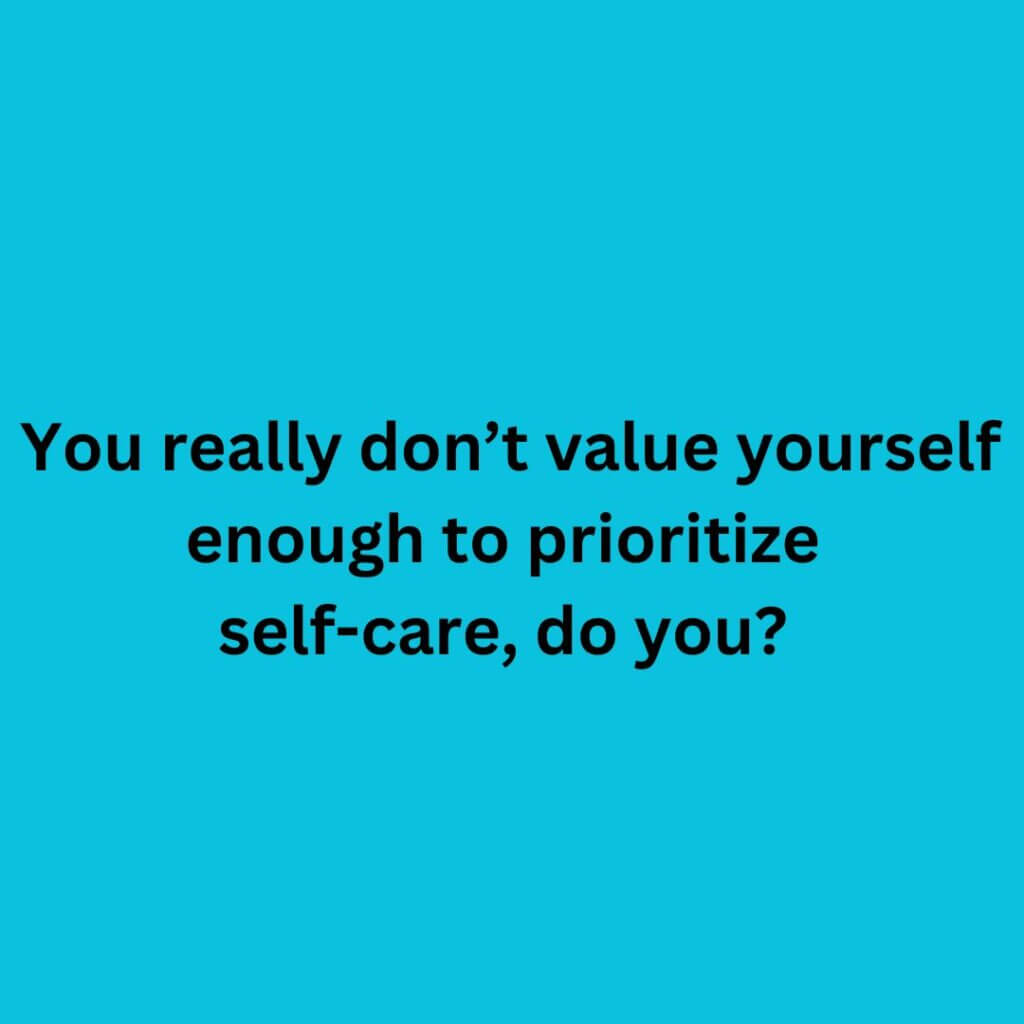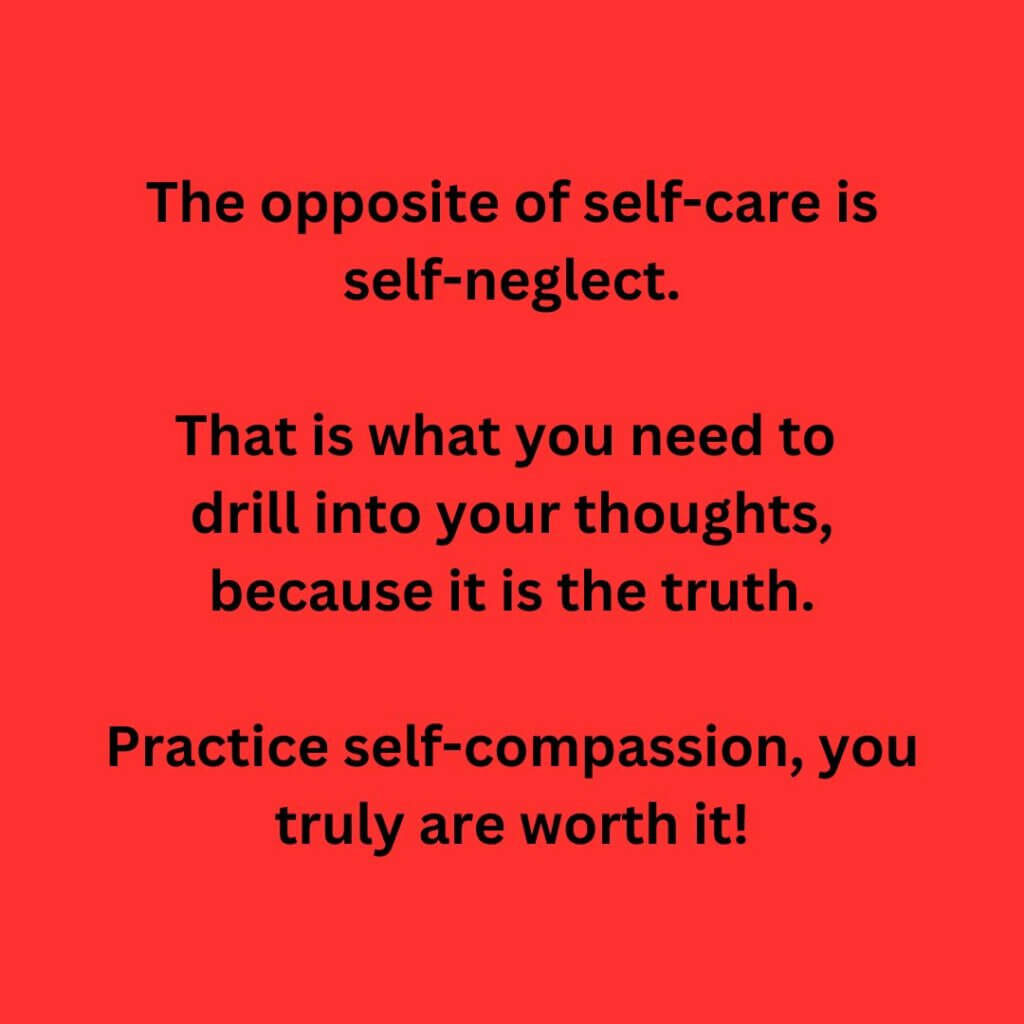
Too often we hear the phrase “self-care” and we think of physical health. While that is very important, sometimes the more important issue is taking time to care of your own mental health needs. If your care receiver has Alzheimer’s disease or another form of dementia, you will need better coping skills and tips to weather the coming storms. If your care receiver has a physical limitation from a stroke or another chronic illness, you are going to need a different set of coping skills. Sure, some things may overlap, but they are different issues with different stressors.
If you are a family caregiver, you know firsthand the challenges and rewards of caring for a loved one. While caregiving can be a fulfilling experience, it can also take a toll on your mental health. According to the Anxiety and Depression Association of America, more than one in five Americans are caregivers, and four in ten find their situation extremely stressful.
As a caregiver, you may experience a range of emotions, including anxiety, depression, and guilt. You may also feel overwhelmed by the demands of caregiving, such as managing medications, coordinating medical appointments, and providing emotional support. These challenges can lead to caregiver burnout, a state of physical, emotional, and mental exhaustion that can affect your ability to provide care.
It is important to prioritize your mental health as a caregiver. Seeking support and resources can help you manage the stress of caregiving and improve your overall well-being. In this article, we will explore the mental health issues faced by family caregivers, the impact of caregiving on physical health, caregiver support and resources, and self-care strategies for caregivers.
Key Takeaways
- Caregiving can take a toll on your mental health, leading to anxiety, depression, and caregiver burnout.
- Prioritizing your mental health as a caregiver is essential to providing quality care and improving your overall well-being.
- Seeking support and resources, practicing self-care, and focusing on the positive aspects of caregiving can help you manage the stress of caregiving.
Understanding Family Caregivers
If you are a family caregiver, you are likely to be a family member or a close friend of someone who is living with a health condition. Family caregivers play a crucial role in supporting their loved ones, and their contributions are invaluable. According to the National Alliance on Mental Illness (NAMI), there are over 43.5 million family caregivers in the United States, and this number is expected to grow as the population ages.
Family caregivers help with daily activities such as bathing, dressing, and eating, and they may also provide transportation to medical appointments and help with managing medications. Additionally, family caregivers often provide emotional support to their loved ones, which can be especially important for those living with mental health conditions.
Being a family caregiver can be rewarding, but it can also be challenging. Caregivers may experience high levels of stress and frustration, and they may struggle to balance their caregiving responsibilities with other aspects of their lives, such as work and family
It is important for family caregivers to take care of their own health and well-being, as their own health can impact their ability to provide care. Caregivers may benefit from taking breaks from their caregiving responsibilities and engaging in self-care activities, such as exercise, meditation, or spending time with friends and family.
Mental Health Issues Faced by Caregivers
Taking care of a loved one can be a rewarding experience, but it can also be incredibly challenging. Caregiving can take a toll on your mental health, leading to stress, anxiety, depression, and chronic stress. In this section, we’ll explore some of the mental health issues faced by caregivers.
Stress and Anxiety
Caregiving is a stressful experience, and it’s not uncommon for caregivers to experience anxiety. You may worry about your loved one’s health, finances, or future. You may also feel overwhelmed by the responsibilities of caregiving. If you’re feeling stressed or anxious, it’s important to take care of yourself. Make time for self-care activities, such as exercise, meditation, or spending time with friends. You may also find it helpful to talk to a therapist or counselor.
Depression
Depression is a common mental health condition that affects many caregivers. Caregiving can be isolating, and you may feel like you’re alone in your struggles. Symptoms of depression can include feelings of sadness, hopelessness, and loss of interest in activities you once enjoyed. If you think you may be depressed, it’s important to seek help. Talk to your doctor or a mental health professional about your symptoms.
Chronic Stress
Chronic stress is a type of stress that occurs over a long period of time. Chronic stress can lead to increased levels of cortisol, a hormone that is released in response to stress. High levels of cortisol can lead to a weakened immune system, increased blood pressure, and other health problems. If you’re experiencing chronic stress, it’s important to take steps to manage it. This may include practicing relaxation techniques, such as deep breathing or yoga, or seeking support from a therapist or support group.
Impact of Caregiving on Physical Health
As a family caregiver, you may experience physical health problems due to the demands of caregiving. Family caregivers experienced a 26% greater impact of health conditions that could lower their overall health, as measured by the BCBS Health Index. Caregiving can affect your ability to maintain a healthy lifestyle, such as eating a balanced diet, getting enough exercise, and getting adequate sleep.
Caregiving can cause physical strain on your body, leading to injuries such as back pain or muscle strains. The physical demands of caregiving can also lead to exhaustion and fatigue, which can weaken your immune system and make you more susceptible to illnesses.
Caregiver Support and Resources
As a family caregiver, it is important to take care of your own mental health. You may feel overwhelmed, stressed, or isolated at times, but there are resources available to help you cope. Here are some professional support and online resources that may be helpful:
Professional Support
- Therapy: Consider seeing a therapist who specializes in caregiver mental health. They can provide you with support, coping strategies, and a safe space to talk about your feelings.
- Nurses: If you are caring for a loved one who has a medical condition, consider hiring a nurse to help with caregiving tasks. They can provide you with support and education on how to care for your loved one’s medical needs.
- Mayo Clinic: The Mayo Clinic offers a variety of resources for caregivers, including support groups, educational materials, and caregiver training programs.
Online Resources
- NAMI: The National Alliance on Mental Illness (NAMI) offers resources and support for caregivers of individuals with mental health conditions. They offer online support groups, educational webinars, and information on how to find local resources.
- Mental Health Resources: Mental Health America offers a variety of resources for caregivers, including information on how to manage stress, support groups, and a caregiver guide to mental health.
Remember, taking care of your own mental health is just as important as taking care of your loved one. Don’t be afraid to reach out for help and support.
Self-Care for Caregivers
As a family caregiver, it’s easy to get caught up in the needs of your loved one and forget about your own well-being. However, it’s crucial to take care of yourself both physically and mentally. Here are some tips and advice to help you reduce stress and maintain your self-esteem while providing home care.
Tips and Advice
- Take breaks: It’s essential to take some time off from caregiving duties. Even if it’s just for a few hours, taking a break can help you recharge and reduce stress. You can ask a friend or family member to take over caregiving duties while you take some time for yourself.
- Exercise regularly: Exercise is a great way to reduce stress and improve your overall health. Even if you can only spare a few minutes a day, taking a short walk or doing some light stretching can help you feel better both physically and mentally.
- Get enough sleep: Lack of sleep can lead to increased stress, anxiety, and other health problems. Make sure to get enough sleep each night, and if you’re having trouble sleeping, talk to your doctor for advice.
- Connect with others: Caregiving can be isolating, but it’s important to stay connected with others. Join a support group for caregivers, or simply reach out to friends and family for emotional support.
- Take care of your own health: It’s easy to neglect your own health when you’re focused on caring for someone else. Make sure to attend your own healthcare appointments, get regular check-ups, and eat a healthy diet.
Importance of Self-Care
Taking care of yourself is not only important for your own well-being but also for the well-being of your loved one. If you’re stressed, anxious, or burned out, it can be challenging to provide the best care possible. By taking care of yourself, you’ll be better equipped to handle the challenges of caregiving and provide the best care possible.
Remember that self-care is not selfish. It’s essential to take care of yourself so that you can take care of others. By following these tips and advice, you can reduce stress, maintain your self-esteem, and provide the best care possible for your loved one.
Positive Aspects of Caregiving
Opportunities for Adaptation
Being a caregiver can help you develop new skills and adapt to different situations. You may find yourself becoming more patient, empathetic, and resourceful as you care for your loved one. These skills can be valuable not only in your caregiving role but also in other areas of your life.
Positive Relationships
Caregiving can also strengthen relationships with your loved one. As you provide care and support, you may find that your bond with them deepens. This can bring a sense of fulfillment and purpose to your life.
Opportunities for Personal Growth
Caregiving can provide opportunities for personal growth and self-discovery. You may learn more about yourself and your values as you navigate the challenges of caregiving. This can lead to a greater sense of self-awareness and personal growth.
Positive Psychological Effects
Research has shown that caregiving can have positive psychological effects. For example, caregivers may experience a sense of satisfaction and fulfillment from providing care for their loved one. They may also experience a greater sense of purpose and meaning in their lives.
Opportunities for Meaningful Activities
Caregiving can provide opportunities for meaningful activities. For example, you may find that you enjoy spending time with your loved one, engaging in activities that you both enjoy. This can bring a sense of joy and fulfillment to your life.
Conclusion
Caring for a family member with advanced illness in the home can have a significant impact on the personal realm of the caregiver and the relationship they maintain with the ill family member. Being involved in the process of dying translates into a prodigious physical and psychological effort, together with a high level of emotional strain. It is essential to recognize the mental and physical health effects of family caregiving.
As a family caregiver, you may experience emotional strain, including depression, anxiety, and stress. These negative emotions can lead to physical health problems such as high blood pressure, heart disease, and a weakened immune system. It is crucial to prioritize your mental and physical health as a caregiver.
Research has shown that caregiver involvement in shared decision-making can lead to better health outcomes for both the caregiver and the care recipient. It is essential to communicate effectively with healthcare providers and share your concerns and needs as a caregiver.
It is also important to recognize the rewards of caregiving. Caregiving can provide a sense of purpose, fulfillment, and personal growth. It is essential to acknowledge and appreciate the positive aspects of caregiving while also addressing the challenges.
In conclusion, family caregiving can have significant mental and physical health effects. It is crucial to prioritize your mental and physical health and communicate effectively with healthcare providers. Recognizing the rewards of caregiving while addressing the challenges can lead to a more fulfilling caregiving experience.











